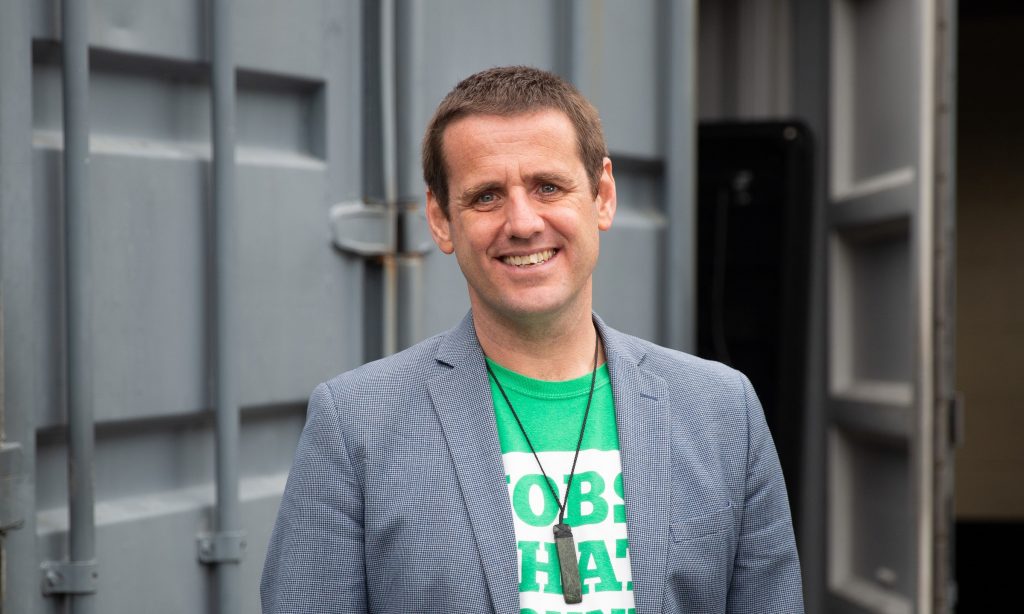Sam Huggard

Sam Huggard is a driving force for climate change mitigation in Aotearoa, as well as for a just transition to a low-carbon economy. He represents that fundamental engine of our economy – our workforce. What inspires him to keep driving for change?
“We have a saying in the union movement that there are no jobs on a dead planet,” Sam says. “Climate change is coming. It’s probably the most significant issue to affect working people. I have a sense of obligation to New Zealand workers, to make sure their voices are front and centre in our planning.”
Climate change is coming. It’s probably the most significant issue to affect working people. I have a sense of obligation to New Zealand workers, to make sure their voices are front and centre in our planning.
Sam’s been a member of our Representative User Group for a while now, which has been useful, he says, “in part through hearing how other sectors are planning their work. The union movement is very much in the mitigation space, so it’s been advantageous to get on top of the issues around adaptation.”
While the union movement sees that mitigation is the most pressing issue, bearing the highest risk of rapid economic disruption for working people and their families, it acknowledges that workers have a wider interest around adaptation challenges. “The key learning,” says Sam, “is making sure that the people affected by change – be that mitigation efforts to reduce greenhouse gas emissions or adapting to sea level rise or adverse weather – need to be there helping to plan the response.” Sam believes there are lessons we can learn from communities who’ve gone through previous transitions, including those caused by natural disasters, such as in Christchurch.
If there are particular communities who are heavily affected, like those in low-lying areas or regions especially exposed to extreme weather events, then I want us to gather round and support these people collectively, not just leave them to fend for themselves
Echoing the principles of the recent Climate Change Adaptation Technical Working Group (CCATWG) report (including We adapt together, in partnership – ara whakamua), Sam emphasises the importance of involving everyday people in the decision-making process. “Climate change is a social issue that can be collectively decided,” he says.
“If there are particular communities who are heavily affected, like those in low-lying areas or regions especially exposed to extreme weather events, then I want us to gather round and support these people collectively, not just leave them to fend for themselves.”
In a recent blog post, Sam wrote, “big transitions in work can make people anxious. New Zealand hasn’t done them well before.” Facing and managing anxiety may well be key for effective climate adaptation. “Knowing there is a plan in place to help New Zealand transition will be critical,” Sam agrees. “If workers can see a future for themselves in a decarbonised society – in which they can contribute, have good jobs, see a future for their kids – they’ll be up for the changes we need to make. If change comes too quickly or is poorly planned, this creates anxiety.”
Reflecting on what’s working well in the Challenge, Sam says, “I think what’s critical is that there is a two-way conversation. Sector bodies, like the one I represent, need to do the work with our communities to find out what they need.” He doesn’t expect the Challenge to do everything – handing workers, for example, a snappy digest of climate information on a plate. “It’s really up to us to work out what information and science we need, for our constituencies – and make this clear to the Challenge. In other words, we have to meet half way – and design the response collectively.”